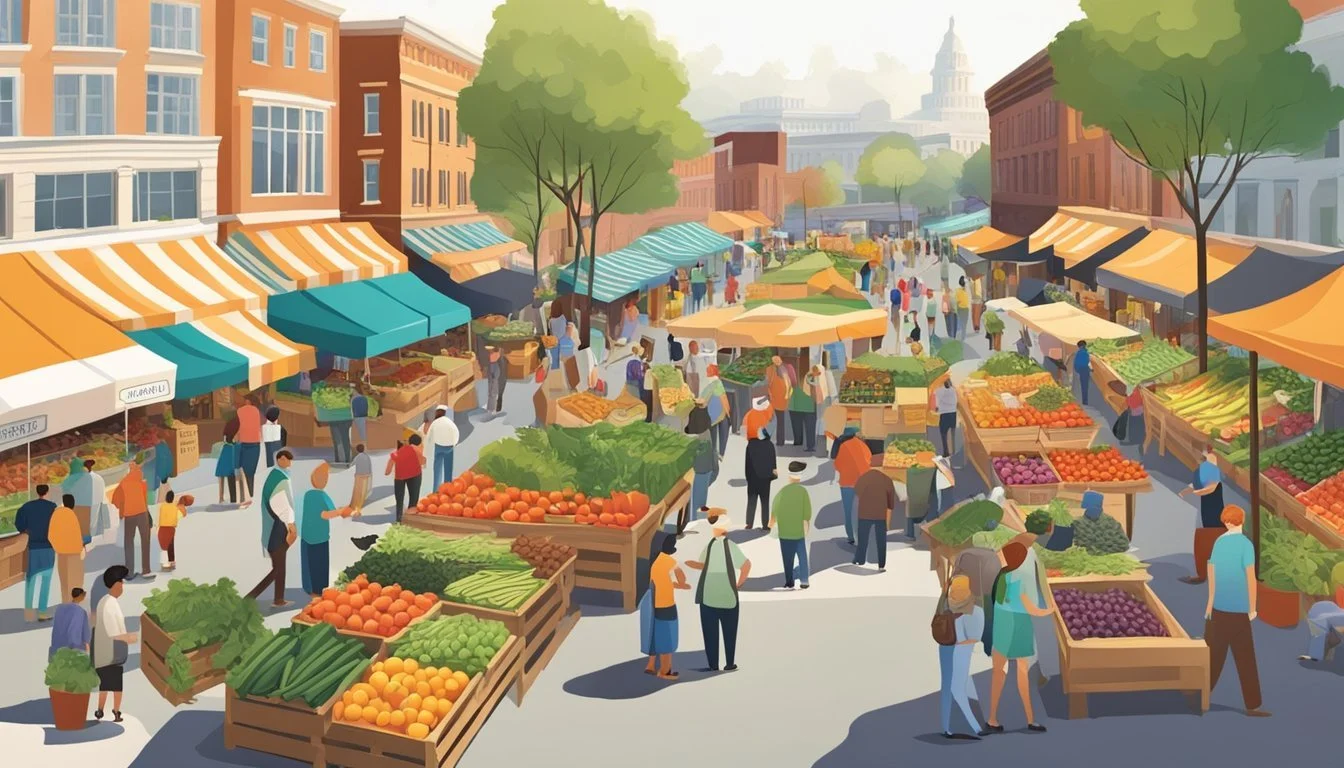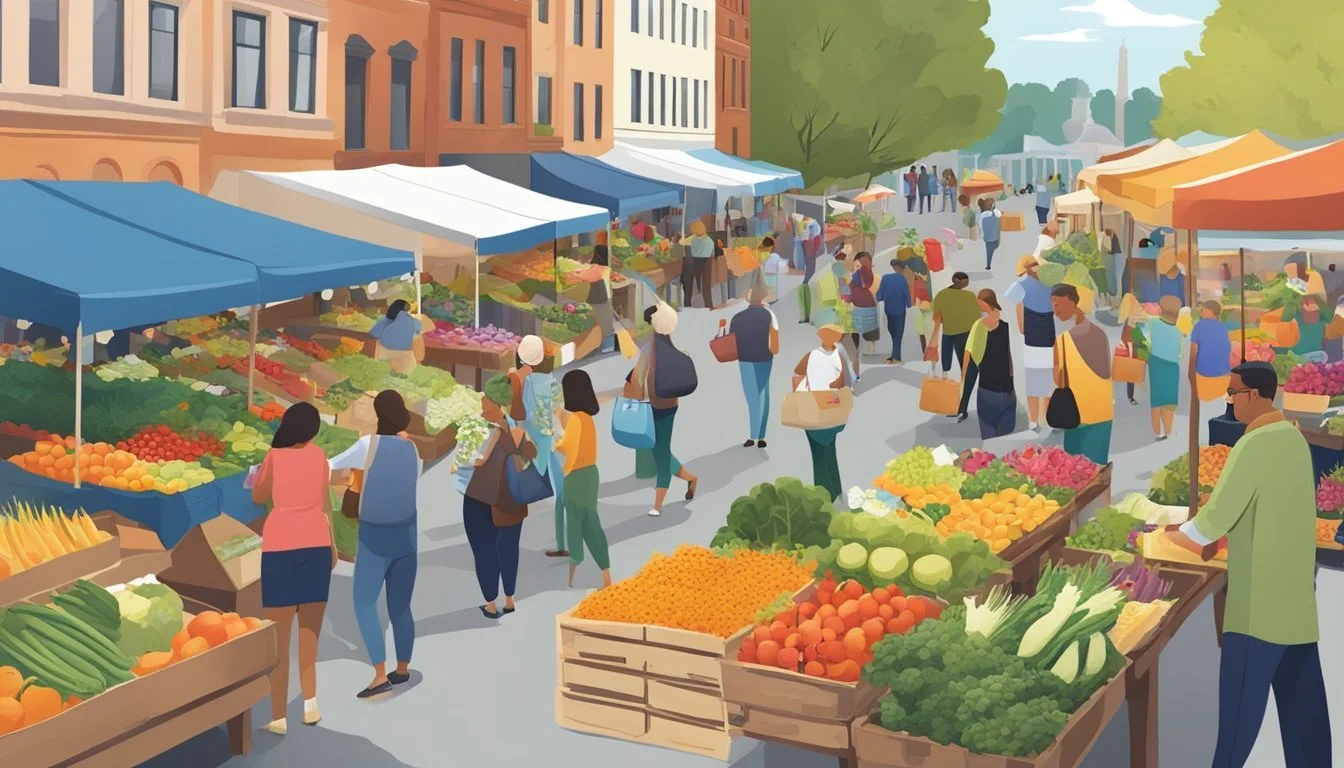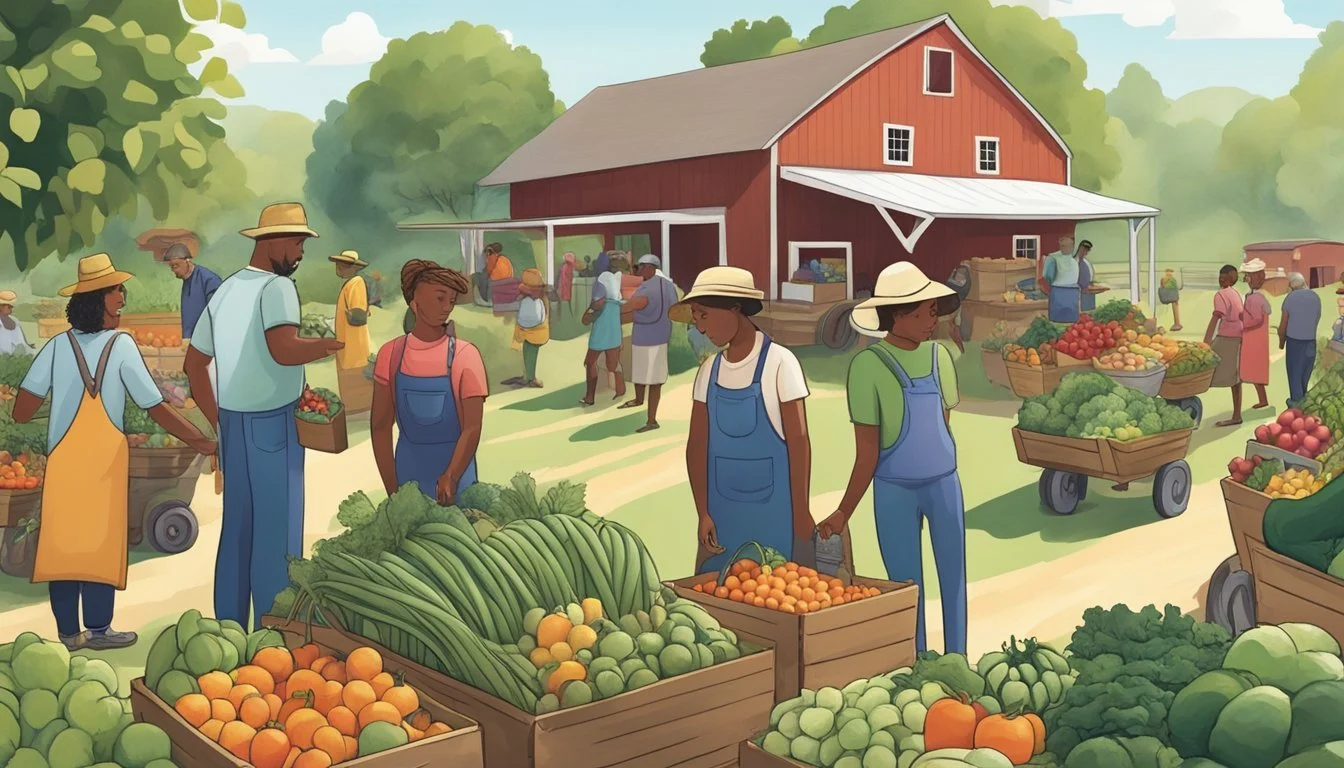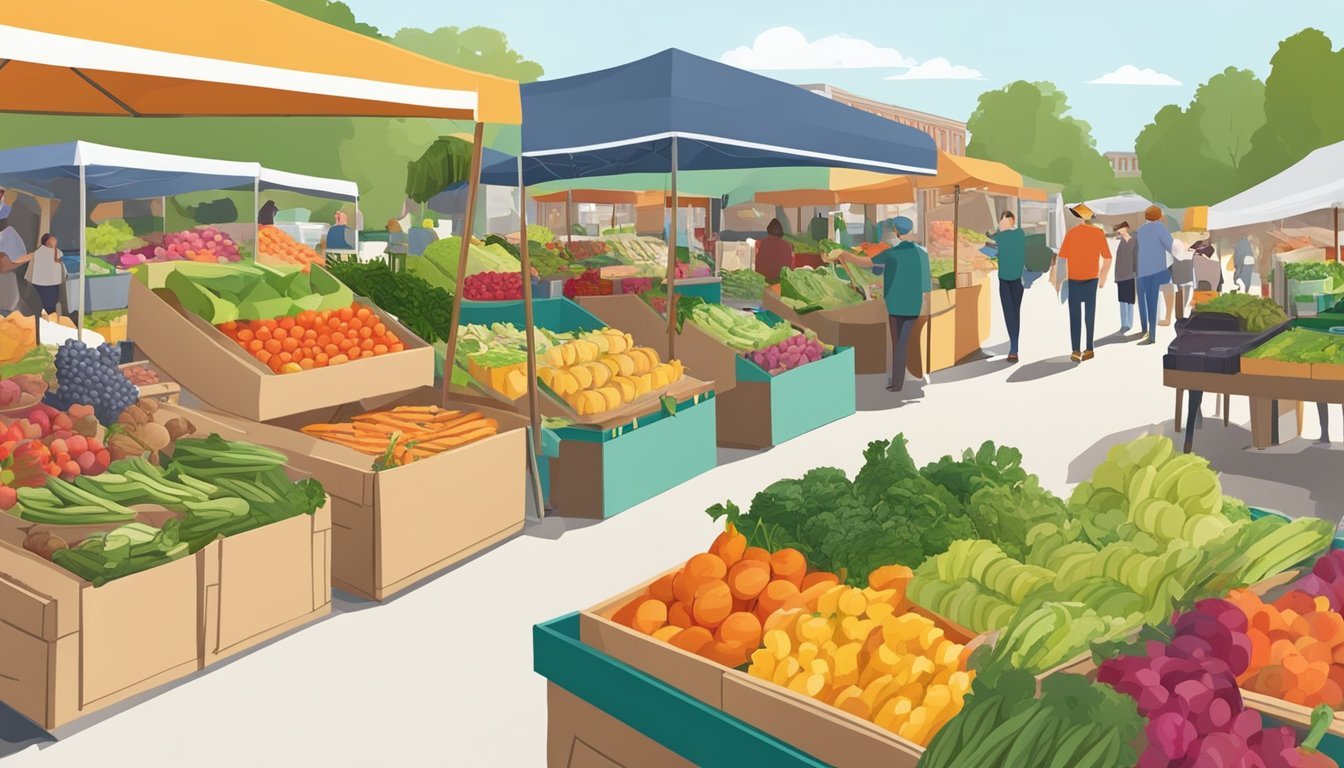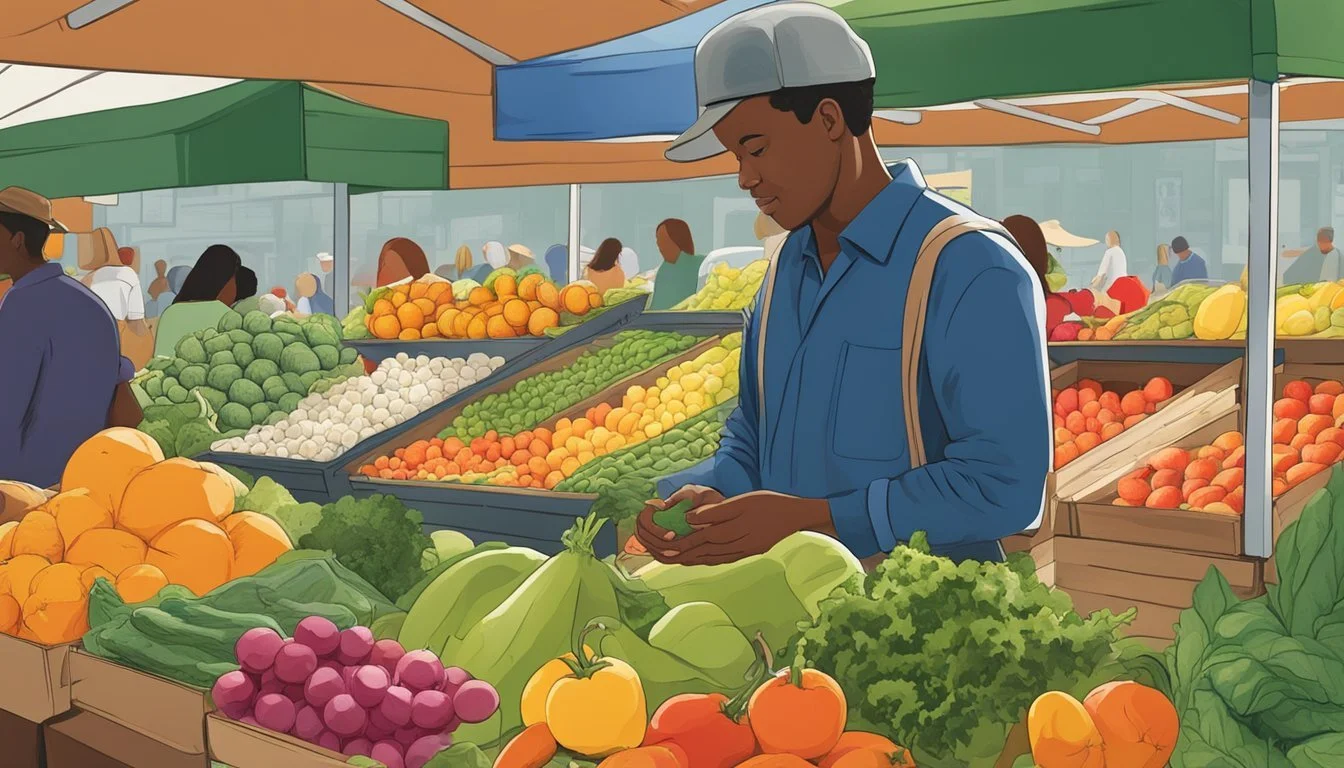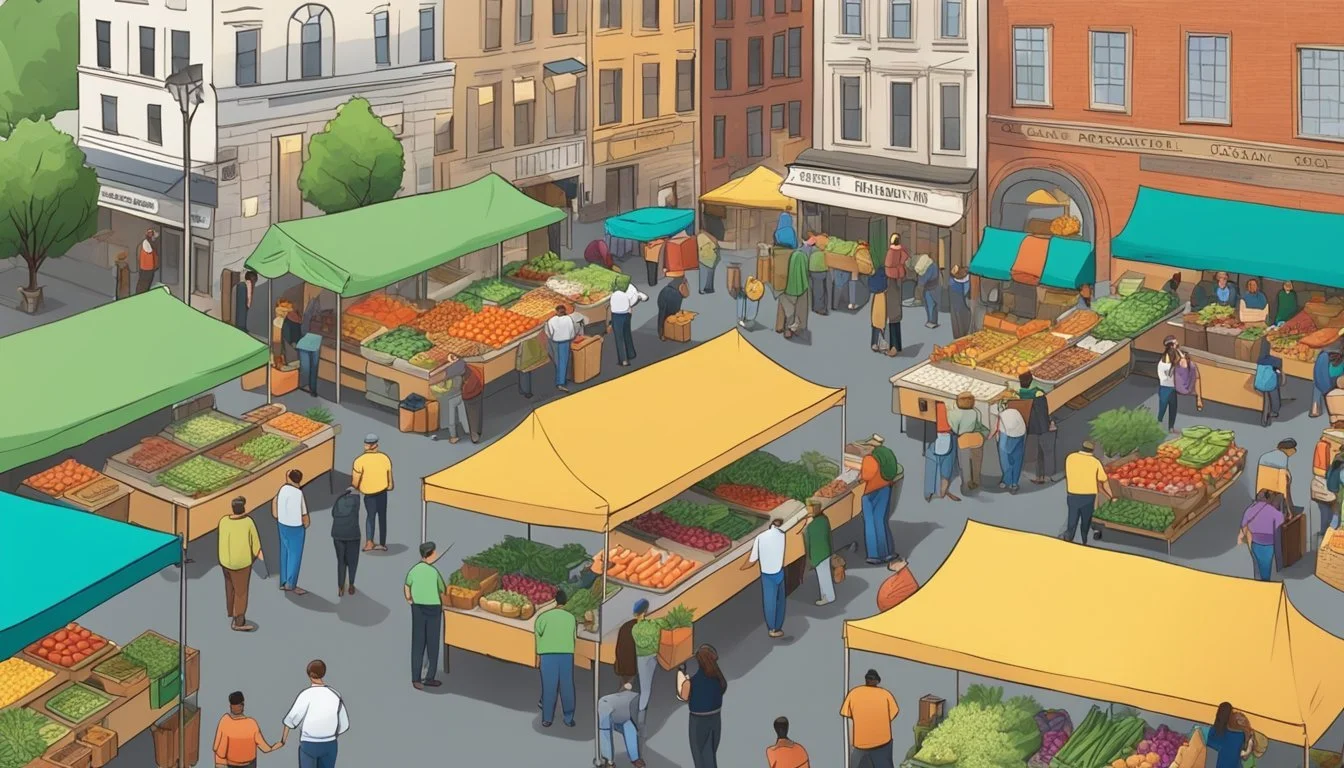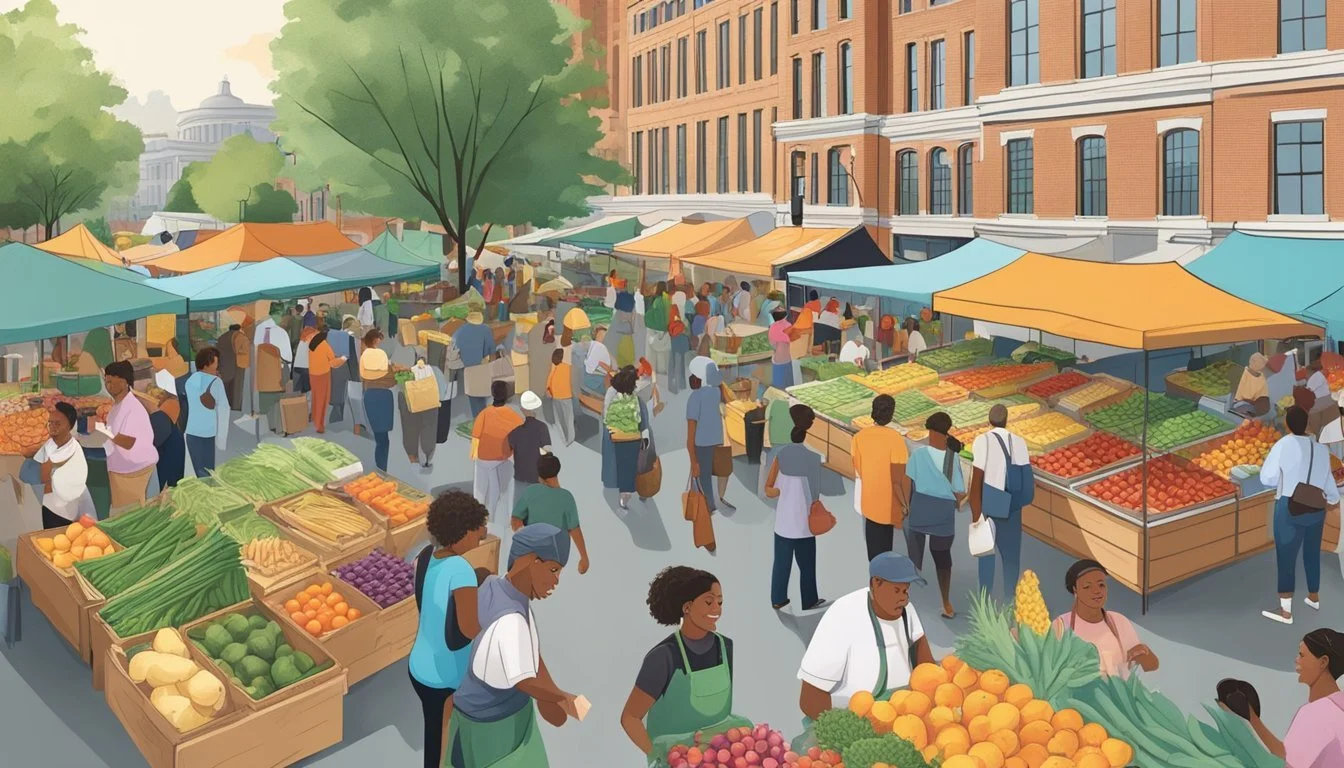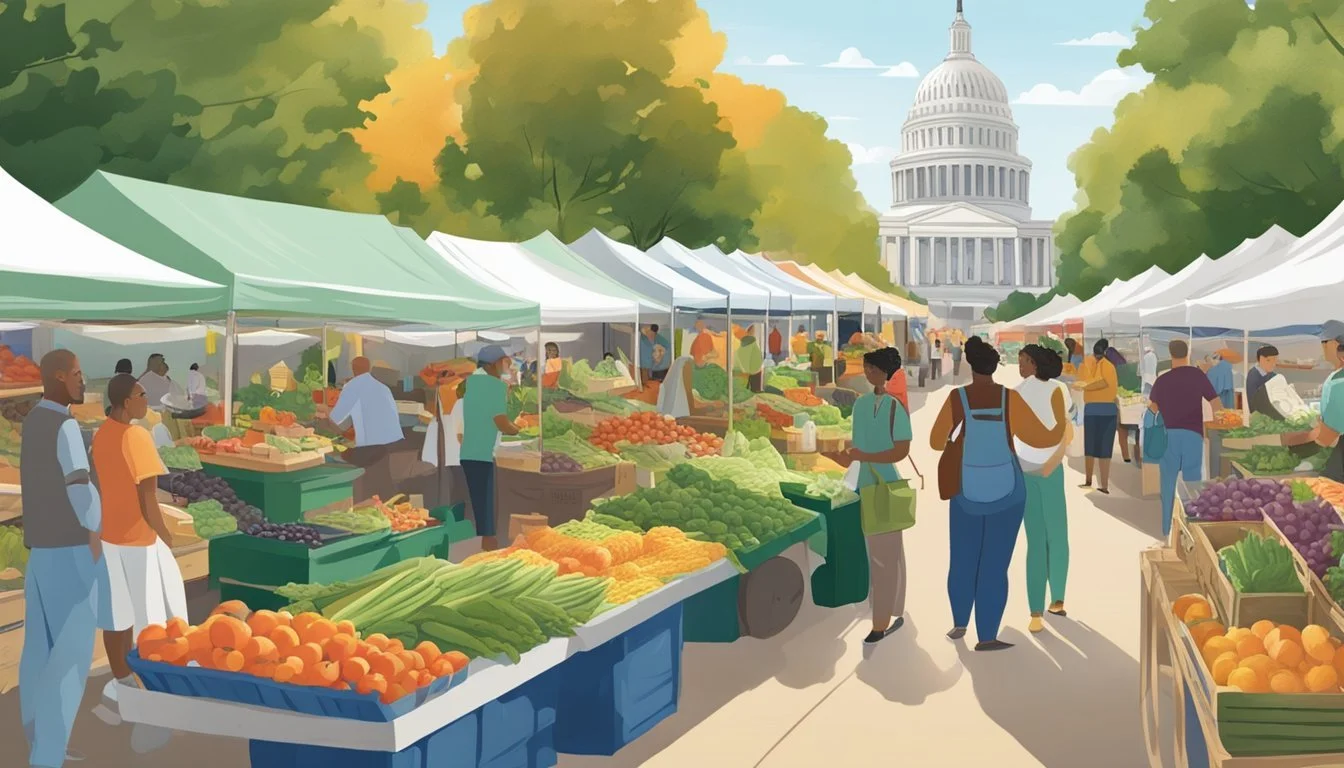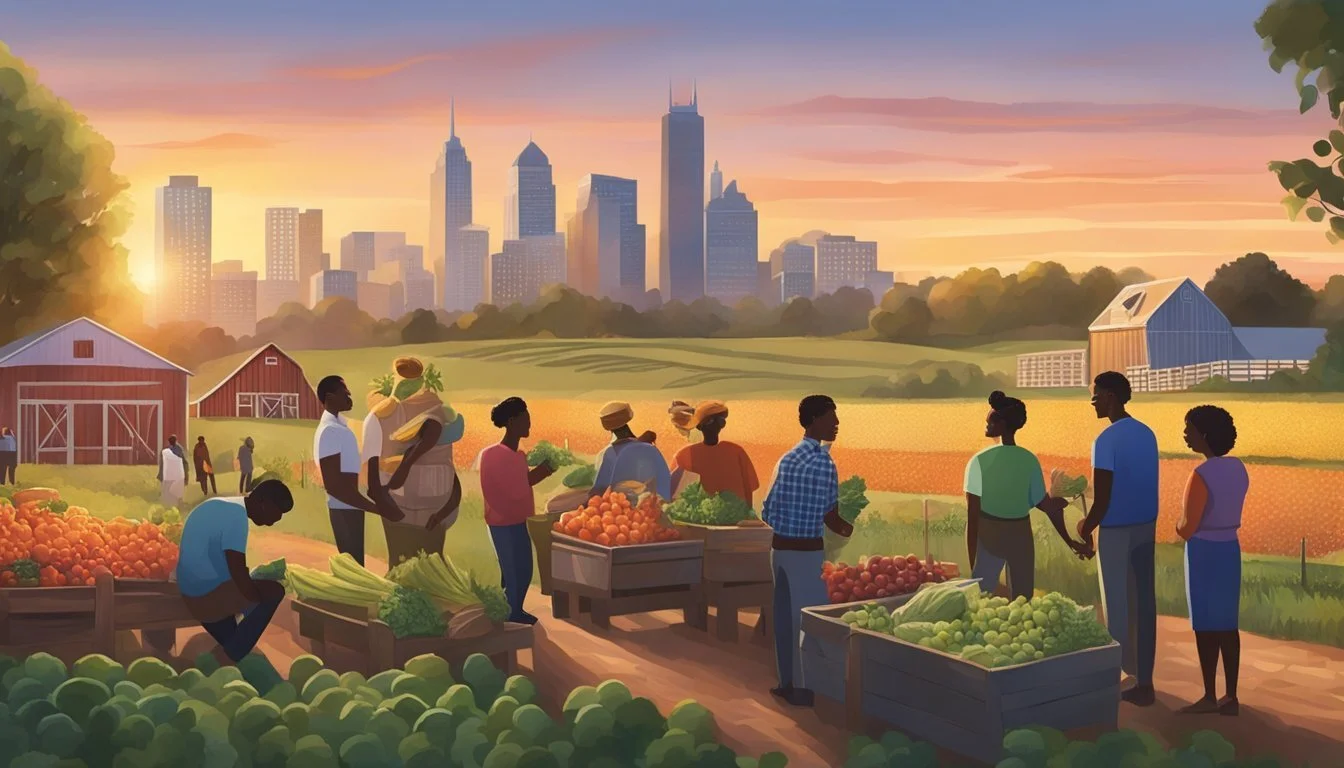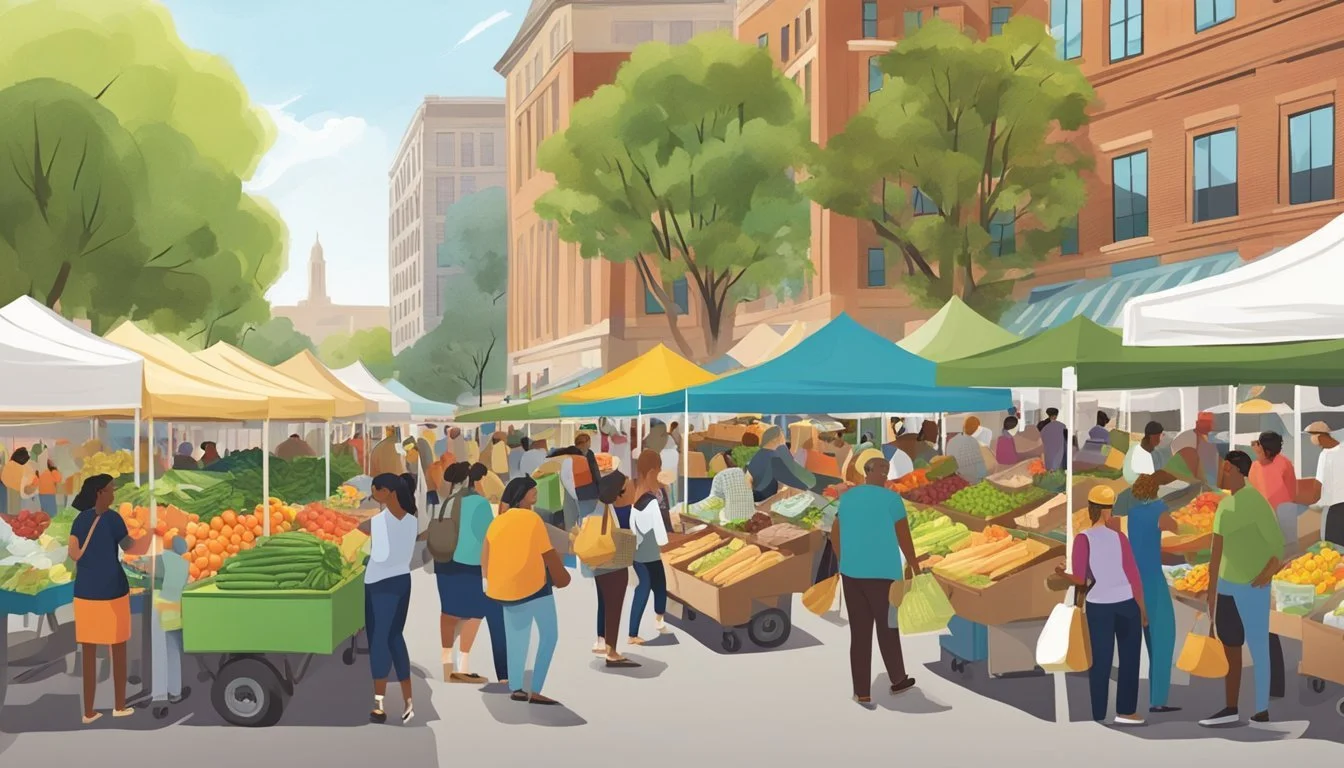Community Supported Agriculture (CSA) in Washington, DC
A Guide to Local Farm Shares
Community Supported Agriculture, or CSA, has gained significant momentum in the Washington, DC area as residents seek fresher, local produce while supporting their regional foodsheds. The concept is straightforward: consumers purchase shares, or "memberships," from local farms, and in return, they receive a portion of the season's harvest. This model benefits both the farmer, by providing them with upfront capital, and the consumer, by offering access to fresh, locally-grown produce.
In Washington, DC, the interest in CSAs aligns with a broader movement towards sustainable eating and supporting local agriculture. The region boasts a diverse array of CSA programs that cater to a variety of preferences and needs. These programs not only include vegetable and fruit shares but often extend to include other farm products like eggs, dairy, and meat.
Participation in a CSA also fosters a closer connection between consumers and the source of their food. By involving themselves with CSAs, DC locals are becoming part of a community that values food transparency, seasonality, and agricultural sustainability. As a result, membership in these programs is more than just a simple exchange of goods; it's an educational experience and a commitment to the environment and local economy.
History and Concept of CSA
The concept of Community Supported Agriculture (CSA) represents a partnership between farmers and consumers, wherein responsibilities, risks, and rewards of farming are shared.
Defining CSA
Community Supported Agriculture (CSA) is a model where consumers purchase shares of a farm's harvest in advance. This financial structure benefits the farmer by providing upfront capital and ensures that consumers receive fresh, local produce throughout the farming season. Members of a CSA, often referred to as shareholders, are effectively invested in the farm's output and, by proxy, share in the bounty and the risks, like poor harvests due to weather conditions.
Evolution of CSA in the United States
The adoption of CSA in the United States began in the 1980s, inspired by European models of cooperative agriculture and efforts by American pioneers aiming to forge tighter farmer-consumer relationships. It is widely acknowledged that the Indian Line Farm in Massachusetts, established by Robyn Van En in 1986, is one of the earliest examples of such models in the U.S. This type of agriculture fundamentally shifted the consumer-farmer dynamic, creating a community-centric approach to farming. The practice has since seen growth, particularly in the Washington, DC area, offering an alternative to the grocery store supply chain by reconnecting residents directly with the sources of their food.
Benefits of Joining a CSA
Community Supported Agriculture in Washington, DC, offers a range of advantages encompassing health, environmental, and economic aspects. Individuals subscribing to a CSA not only gain access to fresh, nutrient-dense local produce but also contribute positively to the environment and the local economy.
Health and Nutrition
Members of CSAs enjoy the health benefits of consuming fresh, nutrient-dense fruits and vegetables. Such produce is often picked at its peak of ripeness, ensuring optimal quality and nutritional value. The absence of long transportation times means produce retains more of its original nutrients, which are essential for maintaining a healthy diet.
Environmental Impact
Joining a CSA directly supports practices that have a positive environmental impact. By sourcing local produce, CSAs reduce the carbon footprint associated with transporting food over long distances. This model promotes sustainable farming methods, which can contribute to soil health and biodiversity. Consumers who are part of a CSA are engaged in a food system that prioritizes the environment.
Economic Advantages
CSAs provide economic benefits to both the consumer and the local farmer. Consumers often receive value for their money with the fresh, high-quality harvest they get. Moreover, by paying upfront, they enable farmers to plan and manage their farms more efficiently. Farmers benefit from financial security and the ability to sustain their operations, thereby strengthening the local economy.
How CSAs Work
Community Supported Agriculture (CSA) is a model in which members subscribe to receive a portion of a farm's harvest throughout a season. This section examines the subscription model, how seasonal harvests are managed, and the responsibilities held by CSA members.
Subscription Model
In Washington, DC, the CSA subscription model is an agreement where individuals purchase shares at the beginning of the growing cycle. This financial support helps farms with upfront costs, in return for which members receive a regular allocation of the farm's produce. Subscription lengths can typically range from 22 to 26-week periods, predominantly covering the peak seasons of summer and fall.
Seasonal Harvests
CSAs operate on the principle of seasonal harvests. Members benefit from fresh produce that is tied to the natural agricultural timelines. While summer and fall harvests are most common, with sign-ups often open from January to May, some farms may offer shares for winter and spring seasons, providing members with a diverse array of produce year-round.
Member Responsibilities
A CSA membership involves certain responsibilities. Members usually commit to a season upfront, with the understanding that agriculture is subject to variations in weather and other factors that can influence the quantity and types of available produce. CSA members may also be required to pick up their shares at designated pick-up points throughout the season. It's essential for members to be flexible and supportive of the farming process as they share in the risks and rewards of crop production.
CSA Offerings in Washington, DC
Washington, DC's CSA programs offer a cornucopia of fresh goods, ranging from locally grown produce to farm-fresh dairy and meats as well as a host of additional handmade and artisanal items. These offerings underscore the region's commitment to sustainable agriculture and support for local farmers.
Types of Produce
CSAs in Washington, DC, typically provide a substantial variety of vegetables and fruit, catering to the preferences of a diverse clientele. Members can expect to receive staple vegetables like tomatoes, carrots, and leafy greens, alongside seasonal fruit such as berries, apples, and peaches. The produce selection is often reflective of the local growing season, ensuring that members receive the freshest options available.
Meat and Dairy Inclusions
Several CSAs go beyond fruits and vegetables, incorporating meat and dairy products into their shares. Options may include:
Grass-fed beef from Virginia farms.
Locally sourced chicken and pork products.
Farm-fresh eggs, collected from free-range chickens.
A selection of cheese, curated from regional creameries.
These inclusions provide an opportunity for members to support sustainable livestock farming practices within their own community.
Additional Items
To enhance the overall CSA experience, many programs also include an array of other locally sourced items:
Bread: Freshly baked, often from local bakers.
Herbs: Aromatic selections like basil, thyme, and mint.
Flowers: Seasonal bouquets to brighten up members' homes.
These additional offerings enrich the weekly shares and often encourage the exploration of new recipes and the enjoyment of the region's full agricultural bounty.
Selecting the Right CSA
When choosing a CSA, individuals should consider the farm's agricultural practices and the logistics of receiving produce, including pickup locations and delivery options.
Evaluating Farms
One should seek farms that prioritize sustainable and local produce. The history and reputation of the farm, along with its methods of farming, are critical. A thorough evaluation includes:
Agricultural Practices: Look for farms that use environmentally conscious methods, aiming for organic or pesticide-free crops.
Farm-Farmer Connection: The relationship between the farm and the farmers it supports can influence produce quality. Farms that value their farmers are more likely to deliver high-quality, fresh produce.
Understanding CSA Logistics
Understanding the delivery and pickup logistics is vital for a convenient CSA experience. Key aspects include:
Pickup Locations: Determine if the CSA offers accessible pickup locations. Proximity to farmers' markets can ensure fresh and immediate produce collection.
Delivery Services: For added convenience, check if the farm provides a subscription service with home delivery options.
Note: Delivery schedules and flexibility can vary, so one should confirm these details to suit their lifestyle.
By considering these factors, individuals can confidently select a CSA that aligns with their values and needs.
Local CSA Farms and Organizations
Community Supported Agriculture (CSA) in Washington, DC connects residents with fresh, locally grown produce while supporting sustainable farming practices. This section explores notable CSA farms and their positive impact on the local ecosystem.
Profiles of Prominent DC CSAs
4P Foods: A mission-driven organization that partners with local farmers to provide fresh food to the Washington, DC area. 4P Foods offers subscriptions for weekly delivery of produce, meat, and dairy sourced from sustainable farms.
Clagett Farm: Operated by the Chesapeake Bay Foundation, this farm provides seasonal produce to CSA members while using regenerative farming techniques to protect the Chesapeake Bay.
Cultivate the City: An urban farm that demonstrates the potential of vertical gardening. Cultivate the City offers CSA memberships for hyper-local produce grown within the city.
From the Farmer: A service that connects consumers with fresh, local produce directly from farms. This company emphasizes flexibility in its subscriptions, allowing members to choose from a wide variety of farm products.
Lancaster Farm Fresh Co-op: A cooperative of over 100 family farmers in Lancaster County, Pennsylvania, delivering organic, seasonal food to CSA members in the DC area.
Spiral Path Farm: A family-owned farm providing organically grown vegetables and fruits to the community through its CSA program, highlighting the value of sustainable agriculture.
Benefits to Local Ecosystem
Sustainability: CSA farms like Clagett Farm and Spiral Path Farm are committed to sustainable farming practices, which include organic methods, crop rotation, and soil conservation, leading to healthier ecosystems.
Urban Farming: Organizations such as Cultivate the City show how urban farming can improve city environments, offering green spaces and reducing the carbon footprint associated with food transportation.
Local Farms: CSA programs support local farms by providing a reliable market for their produce, fostering a resilient local agrifood system and preserving farmland within the community.
CSA Seasonal Calendar
In the Washington, DC area, CSA members can access a diverse array of local produce that varies by season. Knowing what to expect each season helps members plan their meals around fresh, local ingredients.
What to Expect Each Season
Spring
Produce: Leafy greens (spinach, kale), herbs (cilantro, parsley), radishes, peas, and strawberries
Season: Typically begins in May
Summer
Produce: Tomatoes, peppers, cucumbers, berries, stone fruits, and melons
Season: Peaks from June to August
Fall
Produce: Root vegetables (carrots, beets), apples, squashes, and pumpkins
Season: Ranges from September to November
Winter
Some CSAs offer limited winter produce or options like preserved or stored goods
Season: November to February, availability dependent on farm offerings
Year-round CSA Options
Some farms offer year-round CSA options to cater to those who prefer continuous service. These programs often adjust the kind of produce available to fit what is seasonally possible, such as:
Spring/Summer: A variety of fruits and fresh vegetables consistent with warmer months
Fall/Winter: Hearty vegetables, such as squashes, and greenhouse-grown produce or stored crops
Members should check with specific CSA programs for their year-round availability, as offerings can vary based on each farm's capacity and growing practices.
Community and Educational Aspects
Community Supported Agriculture in Washington, DC serves to not only provide fresh, regional cuisine to local consumers but also functions as an interactive educational platform. These programs facilitate a symbiotic relationship between farmers and the community, enhancing both agricultural education and the local food system.
CSAs and Local Schools
Washington, DC schools have integrated CSA programs into their curricula to promote an understanding of regional agriculture and healthy eating habits. Schools partner with local farms, allowing students to experience the journey from farm to table. This hands-on approach teaches children the importance of supporting local farmers and fosters an appreciation for locally-grown produce.
Educational Benefits:
Understanding Food Sources: Students learn about the origins of their food.
Nutritional Education: Lessons on the benefits of eating seasonal and local produce are imparted.
Community Engagement: Young learners participate in CSA subscription models, connecting with local farmers.
Public Workshops and Events
Many CSA programs in the DC area host public workshops and events that are geared towards adults and families. These events often focus on sustainable practices, cooking demonstrations, and the benefits of local and seasonal foods.
Workshop Topics May Include:
Sustainable farming techniques
Preparing regional cuisine
The environmental impact of local sourcing
Community engagement occurs as residents attend these workshops, which also often include farm tours or volunteer opportunities. These programs enhance the communal knowledge of food systems and emphasize the relationship between consumer practices and the health of the local agriculture industry.
Challenges and Considerations
Community Supported Agriculture (CSA) in Washington, DC, involves intricate coordination and an understanding of agricultural and economic intricacies. Stakeholders must navigate through a variety of challenges, including the unpredictability of weather and crop outcomes, as well as the financial planning required for both the farmers and the members.
Weather and Crop Risks
In Washington, DC, CSA farmers are often at the mercy of weather patterns that can greatly affect their crop yields. Unanticipated weather events, such as early frosts or droughts, can lead to a significant loss of crops. This risk is a crucial consideration, as it directly impacts the:
Quantity: Farmers may have less produce to distribute, affecting the share size.
Variety: Specific crops may fail leading to less diversity in the CSA boxes.
This volatility requires CSA programs to be adept in crop planning, often including a variety of crops to counterbalance the failure of some.
Financial Planning for CSA Members
Members of a CSA in Washington, DC engage in a subscription-based model, investing in a share of the anticipated harvest. This financial model presents two main considerations:
Cash Flow for Farmers: Upfront payments from members offer farmers much-needed capital at the beginning of the season but managing these funds for the entire season can be challenging.
Price Structure: Determining the price for a subscription requires careful consideration to ensure it covers the production costs and is also perceived as fair by members.
It's important for members to understand that their subscription is an investment into the local agricultural community and can come with inherent risks, akin to a partnership.
The Future of CSA in the Region
The CSA model in Washington, DC is experiencing significant evolution, embracing trends in sustainability while incorporating technological innovations, aiming to foster a more resilient local food system.
Trends and Growth
The growth trajectory for Community Supported Agriculture (CSA) in the Washington, DC area is closely tied to local demands for sustainable and diverse food sources. An increasing number of consumers seeking regenerative farming practices is leading to an expansion in the number of CSAs. This demand drives the CSA market to offer more diverse crops and improved local food delivery services, to ensure freshness and retain nutritional value. As more individuals become aware of their carbon footprint, the shift towards local sourcing and sustainable eating habits is likely to continue growing.
Sustainable: Emphasis on reducing transportation emissions by sourcing food locally.
Local Food Delivery: Enhanced systems for delivering CSA shares to members, thus ensuring fresh produce.
Innovations in CSA Farming
Innovation is pivotal in Washington, DC's CSA operations. Farmers are now using data analytics to predict crop yields, leading to reduced waste and increased efficiency. Diverse planting strategies are being employed to ensure year-round produce availability and soil health, in line with regenerative agriculture principles.
Regenerative: Implementation of farming methods that restore soil biodiversity, contributing to carbon sequestration.
Innovation: Use of modern technologies, such as crop monitoring sensors and mobile apps for management, to optimize CSA operations.
The integration of such innovations in CSA farming solidifies a future where agriculture contributes positively to both the environment and the local economy.
Supporting CSAs Beyond Membership
While joining a CSA is a fundamental way to support local agriculture, individuals can further the mission of CSAs by engaging in advocacy and volunteering, as well as participating in community events. These efforts are crucial in sustaining the CSA model and ensuring its growth within the community.
Advocacy and Volunteering
Advocacy efforts play a vital role in the promotion of CSAs. Their mission is often supported by individuals who spread awareness about the benefits of local produce and sustainable farming practices. Volunteers may assist in various tasks, including helping at farm stands, distributing produce to members, or utilizing their professional skills to offer services such as legal advice, marketing, or web design. They may also engage in policy advocacy to support agriculture-friendly legislation.
Spread Awareness: Advocate for the CSA model through social media, local markets, and word-of-mouth.
Contribute Skills: Offer pro-bono services that align with personal expertise, benefiting the day-to-day operations of a CSA.
Community Events
Local events are an extension of the CSA's ethos, fostering a sense of community and connection between the farmers and members. Events such as farm-to-table dinners, workshops, and educational farm tours are organized to bring members together and to educate the public about the importance of supporting local farms. These gatherings are an opportunity for members and non-members alike to experience the CSA culture and to directly engage with local food systems.
Farm-to-Table Gatherings: Participate in dinners that showcase the produce and products of local CSAs.
Educational Workshops: Attend or host workshops that focus on sustainable agriculture, cooking with seasonal produce, or other related topics.
Resources and Further Reading
For enthusiasts looking to engage with Community Supported Agriculture (CSA) in Washington, DC, a wealth of resources and further reading materials are available. Hobbyists, researchers, and practitioners can deepen their understanding of CSAs through various books and publications, as well as online platforms and directories that offer useful information and connections to local CSA programs.
Books and Publications
Edible DC: A publication that explores the local food scene, providing insight into CSAs and seasonal food options available in Washington, DC.
Community Supported Agriculture (CSA): A Model for the Farmer and the Community by Elizabeth Henderson: This book offers a comprehensive overview of the CSA model, its benefits, and its implementation.
Online Platforms and Directories
LocalHarvest: An online directory that connects people to local CSAs, farms, and farmers' markets, offering a user-friendly interface to find fresh, seasonal produce.
Tilth Alliance: A resource offering comprehensive information on CSA models, benefits, and strategies to forge stronger relationships between farmers and communities.
Each resource provides a unique perspective on and tools for engaging with CSAs, from the vibrant stories and recipes in Edible DC to the detailed analyses in specialized books. The directories ensure one can easily find and support local CSAs, continuing to nurture the crucial connection between growers and consumers.
Conclusion
Community Supported Agriculture (CSA) programs in Washington, DC have flourished and offer a myriad of benefits to both consumers and local farmers. The CSA model promotes the purchase of seasonal and regional food by providing consumers direct access to fresh, local produce. Local foodsheds benefit from the strengthened connection, creating a sustainable and supportive environment for farmers in the region.
Consumers in Washington, DC have various options when it comes to selecting a CSA program. These programs typically run from spring through summer, aligning with the growing seasons, ensuring that participants receive the freshest produce available. Not only do these CSAs provide a variety of subscription lengths, but some also present flexible models to cater to different needs, accommodating those who might prefer a shorter commitment.
The CSA programs have proven to be of particular importance during challenging times, such as during the pandemic when traditional grocery shopping posed health risks. By opting for a CSA, residents ensure that they have a reliable source of fresh, locally-sourced food.
Moreover, it is noteworthy that many farmers' markets in the region accept forms of government assistance such as SNAP, WIC, and Senior Farmers Market Nutrition Program benefits, actively promoting food accessibility. This inclusion supports low-income individuals and families, fostering an inclusive community space centered around health and nutrition.
In essence, CSAs represent a valuable asset to the Washington, DC community, reinforcing local economy, enhancing food security, and fostering community bonds through shared support of agriculture.

